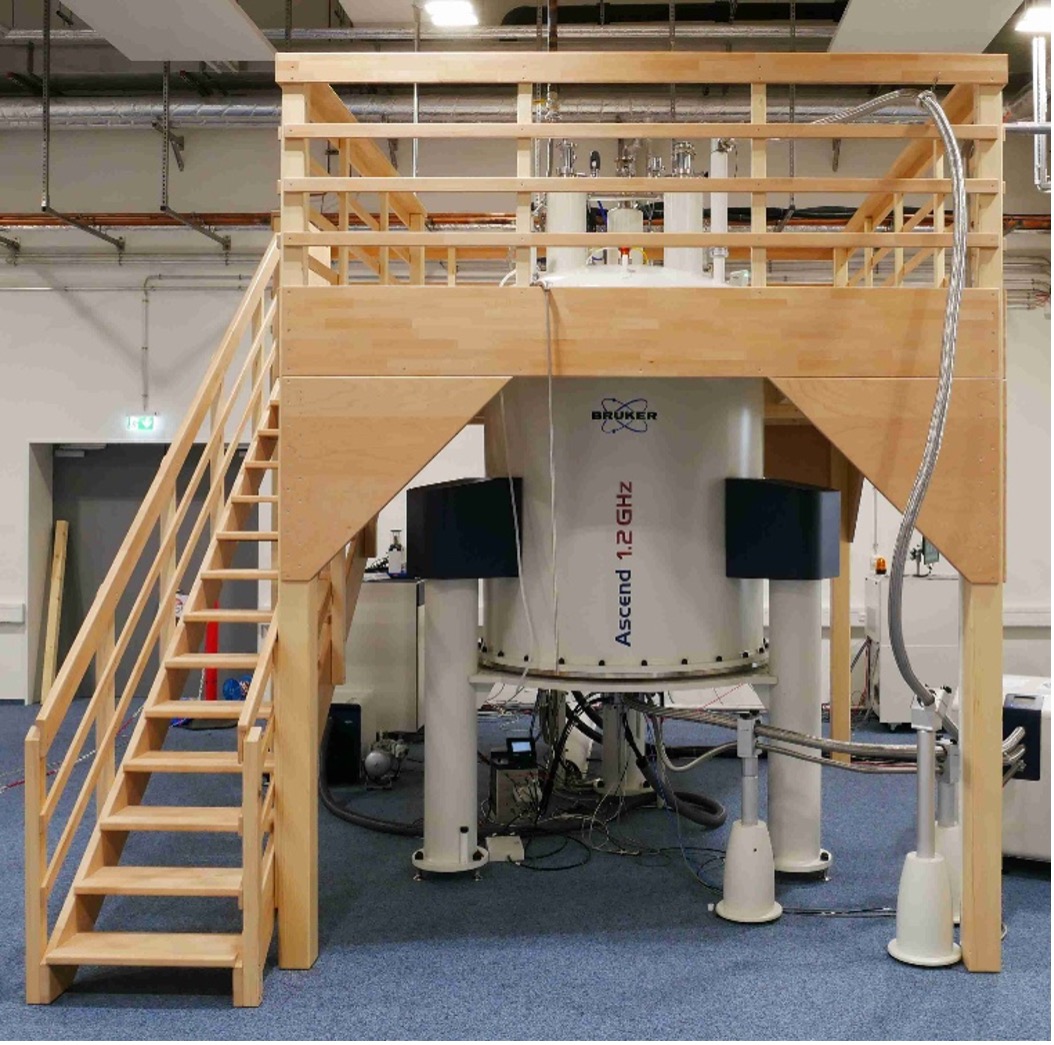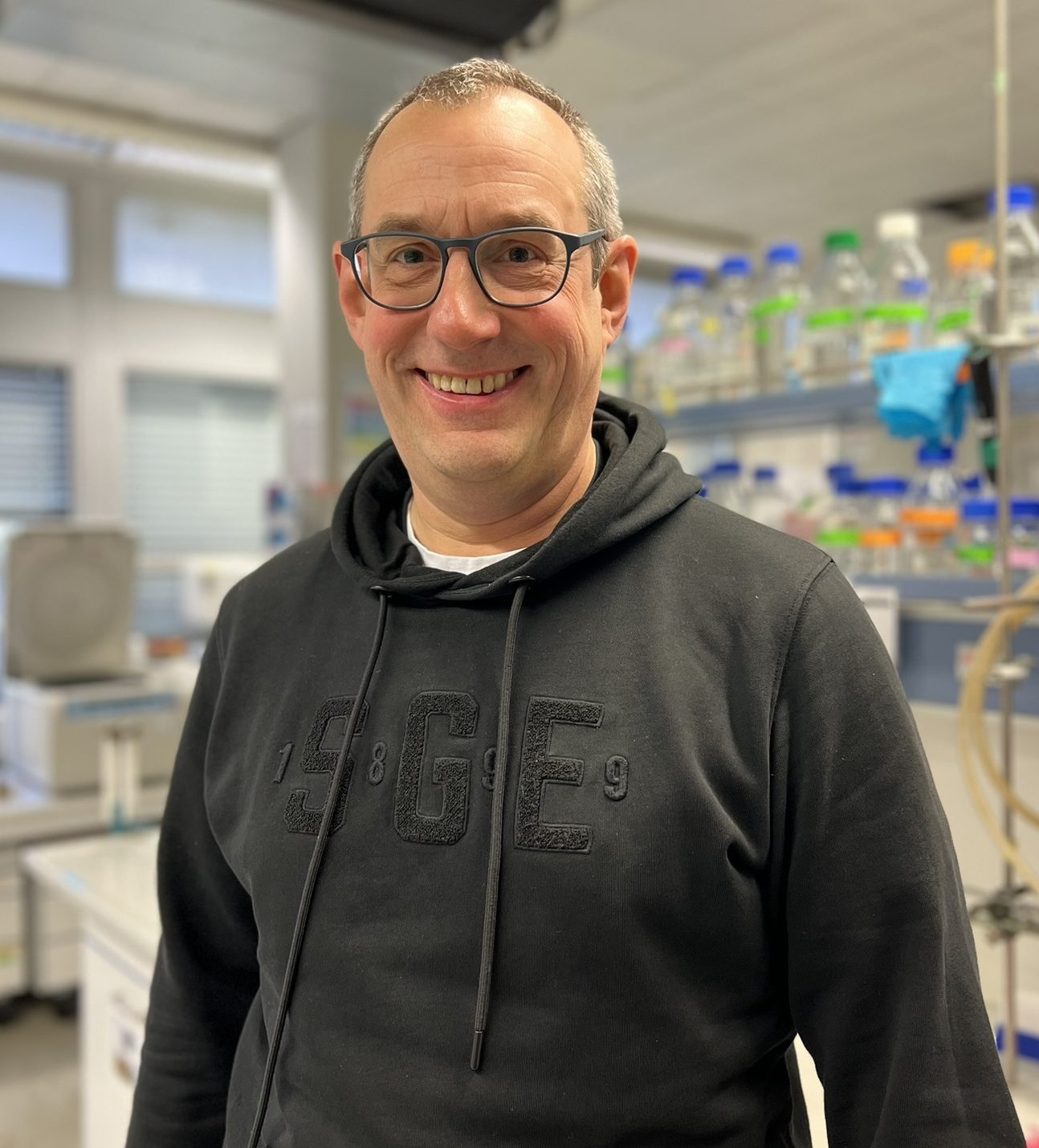View All Magnetic Resonance Techniques at Instruct
NMR of proteins, RNA, ligand-protein and ligand-RNA complexes.
NMR Spectrometers used in the facility:
600 MHz NMR Spectrometer I / NMR-Screening
600 MHz NMR Spectrometer II/ NMR-Screening
600 MHz NMR Spectrometer III / Liquid State NMR
600 MHz NMR Spectrometer IV/ Liquid State NMR
700 MHz NMR Spectrometer / Liquid State NMR
800 MHz NMR Spectrometer I / Liquid State NMR
800 MHz NMR Spectrometer II/ Liquid State NMR
900 MHz NMR Spectrometer / Liquid State NMR
950 MHz NMR Spectrometer / Liquid State NMR
General access to Liquid-state NMR: Spectrometer available: 1.2 GHz, 950MHz, 900MHz, 2x 800 MHz, 700 MHz, 4 x 600MHz
Spectometers available for Photochemical applications: 850 MHz (solids), 800 MHz, 700 MHz, 600MHz, 400 MHz (solids, down to 100 K)
Spectrometer available: 1.2 GHz, 950MHz, 900MHz, 2 x 800 MHz, 700 MHz, 4x 600MHz
For structural investigations of proteins or RNA or DNA using liquid-state NMR spectroscopy, isotopically labeled samples are generally required. Typically, samples should be enriched with 15N and/or 13C isotopes. These labeled biomolecules must be prepared in advance by the visiting scientist. The Facility provides expert advice on optimal isotope-labeling strategies, including recommendations for expression systems, labeling schemes, and sample preparation protocols suitable for the intended NMR experiments.
Facility support commonly includes instrument setup, data acquisition, and data analysis, depending on the user’s level of expertise and project requirements. Additionally, training sessions can be arranged to help visiting scientists gain proficiency in NMR data collection and interpretation.
Access to the Facility can be obtained either through a physical visit or via sample mail-in for remote measurements.
Researchers are strongly encouraged to contact the Facility staff, Christian Richter and Frank Löhr, prior to submitting a proposal, in order to discuss project details and ensure that experimental plans align optimally with available services and instrumentation.


